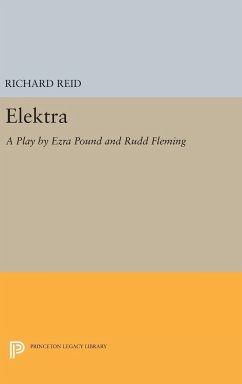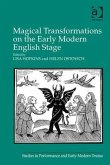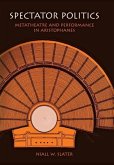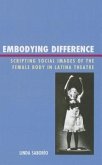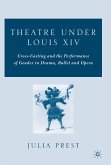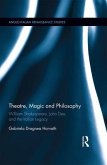This critical edition of Ezra Pound's Elektra marks the most significant appearance in twenty years of a "new" work by the controversial poet. Composed in the early months of 1949, while Pound was under indictment for treason and hospitalized by court order in Washington, D.C., this hitherto unpublished version of Sophocles' play documents a critical stage in the poet's writing career: with his subsequent rendition of Sophocles' Trachiniae and his ongoing translations from the Chinese classics, it signaled his return to sustained composition and his eventual decision to resume his life work, the Cantos. The success of Carey Perloff's Classic Stage Company debut of Pound's play in 1987 has already demonstrated the interest of the theatrical community in the work, and this presentation of the text, with critical apparatus, is a major event in Pound studies. The edition serves as a kind of practical workshop in translation, particularly in its exposition of Pound's discussions with his collaborator, Rudd Fleming. Richard Reid demonstrates in his introduction that Pound's choice of the Elektra was of crucial significance. In the play Sophocles confronts many of our most deeply held cultural assumptions: those concerning the family, the community, the claims of religion and justice, and language itself. As anyone familiar with the works of Pound will readily recognize, these issues are central in his own writings. The Elektra clarifies the formal, thematic, and psychological dilemmas seen in his work following the achievements recorded in the Pisan Cantos. This play and Pound's version of the Trachiniae can lead to a reassessment of his entire oeuvre in the context of this century's history. It will be essential reading for admirers of Pound's poetry, for students of the art of translation, and for directors and actors interested in performing the drama of ancient Athens on the modern stage. Originally published in 1989. The Princeton Legacy Library uses the latest print-on-demand technology to again make available previously out-of-print books from the distinguished backlist of Princeton University Press. These editions preserve the original texts of these important books while presenting them in durable paperback and hardcover editions. The goal of the Princeton Legacy Library is to vastly increase access to the rich scholarly heritage found in the thousands of books published by Princeton University Press since its founding in 1905.
Hinweis: Dieser Artikel kann nur an eine deutsche Lieferadresse ausgeliefert werden.
Hinweis: Dieser Artikel kann nur an eine deutsche Lieferadresse ausgeliefert werden.

